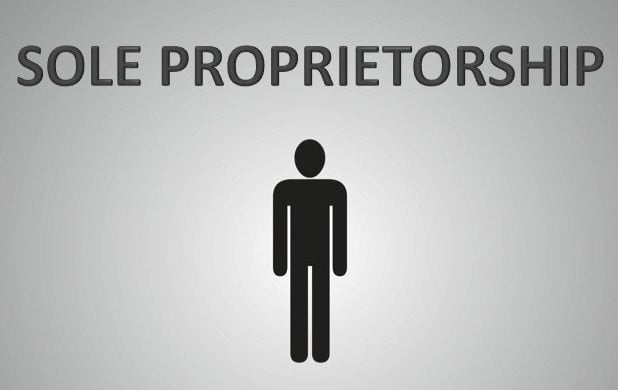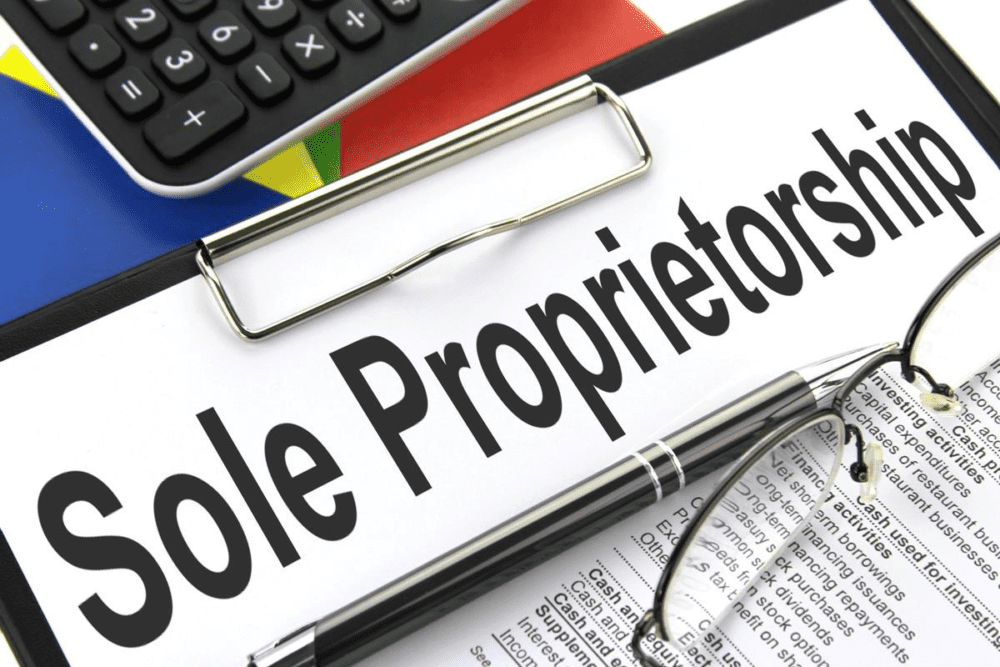The Liability of sole proprietor is: Owning a business has the potential to be both personally and financially rewarding. One of the most crucial considerations you’ll make when launching a business is what legal form the company will take.
The Liability of sole proprietor is
Corporations, partnerships, and sole proprietorships are the three primary business entities.
The form of company entity you pick can have various implications, the most important of which are tax and liability implications.
The Liability of sole proprietor is, for example, exposes the firm owner to personal liabilities.
About The Liability of sole proprietor is
A sole proprietorship is just an individual conducting business without the benefit of creating a formal organization like a partnership or corporation.
You have a sole proprietorship if you own and operate a business without forming a corporation or other organizations that fall under the corporate umbrella.
A sole proprietorship does not require any formal legal paperwork.
On the other hand, many sole proprietors prefer to register their business name with the secretary of state and receive their tax identification number.
The Liability of sole proprietor is: Benefits
There are various advantages to running a firm as a sole proprietorship.
In most circumstances, a sole proprietorship takes very little cash to get started because no legal expenses or formal legal procedures are necessary.
Furthermore, a single proprietorship allows the owner to avoid paying the sometimes high tax rate corporations charge.
You have complete control and management of your firm as a lone proprietor since you don’t have to consult with or answer anybody else, such as a partner or shareholders.
Is a sole proprietor’s responsibility limited?
A single proprietorship is the most basic business form.
The proprietor does not need to register the business with the secretary of state.
Additionally, the owner is exempt from corporate formalities such as holding an annual meeting or maintaining meeting minutes.
While a sole proprietorship has more minor procedures and is easier to set up, it has disadvantages, one of which is the owner’s obligation.
Personal Liability is unlimited.
Personal responsibility for sole owners is limitless.
There is no legal distinction between the owner and the business.
This implies that company creditors and persons with other claims against the owner can access both the business and personal assets of the owner.
Overview:

The Liability of sole proprietor is
The word “sole proprietorship” refers to a business owned and operated by a single individual, the sole owner or sole proprietor.
The company does not have its own identity for legal and tax purposes.
The lone proprietor and the company are regarded as the same.
Sole proprietorships are popular because they are the most straightforward and cost-effective company.
Formation:
The Iowa Secretary of State does not require sole proprietorships to file administrative paperwork.
When starting a sole proprietorship, the owner must select whether to operate under their name or a business name.
The owner must make a trade name filing with the county recorder in the county where the business is situated if a business name will be assumed.
No county filing is necessary if the company will run under the owner’s name.
EIN and Tax Responsibilities:
The Liability of sole proprietor is not required to submit business tax returns; instead, profits and losses must be declared on the sole proprietor’s tax return.
Similarly, unless they plan to recruit employees, sole owners do not need to get an Employer Identification Number (“EIN”).
All firms with workers must use their EIN to submit payments to the IRS.
For the most part, an alone entrepreneur without workers can utilize their social security number instead of an EIN.
Some sole owners who do not have staff decide to get an EIN rather than use their social security number.
The Liability of sole proprietor is limitless:
Limited liability protection is not available to sole proprietorships. Instead, the solitary owner is liable indefinitely.
This means that the lone proprietor is individually accountable for the company’s obligations and costs.
If the company is sued, the sole owner’s assets may be at stake.
A solo entrepreneur should consider purchasing a business liability insurance coverage to safeguard their assets.
Consider the following:
About The Liability of sole proprietor is: single proprietor may be required to declare and pay some taxes not described above, such as:
Sales tax and use tax depend on the individual company’s activity.
The lone proprietor may require licenses or permissions.
If you would like more information or assistance organizing a company entity, please contact one of our business formation and startup attorneys.
Liability

The Liability of sole proprietor is
The main disadvantage of being a sole proprietor is the obligation that comes with it.
You are personally accountable and responsible for payment if your firm incurs obligations that it cannot pay from profits.
To collect the loan, creditors may sue you personally. Likewise, the inverse is true.
If you don’t pay your obligations, a creditor may take your business revenues or assets to repay you.
Along with financial debt, as a single owner, you are personally liable for any torts or injuries that arise due to your business’s activities or omissions.
You might be able to get liability insurance for your company that will assist you in avoiding tort responsibility.
Alternatives

The Liability of sole proprietor is
State laws governing corporate entities differ slightly; nonetheless, the essential liability concepts are the same throughout states.
A general partnership will not insulate you from responsibility, but a limited partnership will. On the other hand, a limited partner usually has only limited power over the company.
In most circumstances, a corporation, or one of the organizations under the corporate umbrella, such as an S company, will insulate the owners from personal liability.
To choose the proper business entity for your firm, consult an attorney.
Important Points
Filing taxes as a single proprietorship is less complicated than filing taxes as a corporation.
Sole proprietorships often require less startup capital and have more specific payroll responsibilities.
Sole proprietorships are less regulated than other types of businesses.
Term Definitions
A separate legal body that has been formed via a legislative or registration procedure created through law is known as a corporate corporation.
Read More: Type of Sole Proprietorship & everything that belongs to her